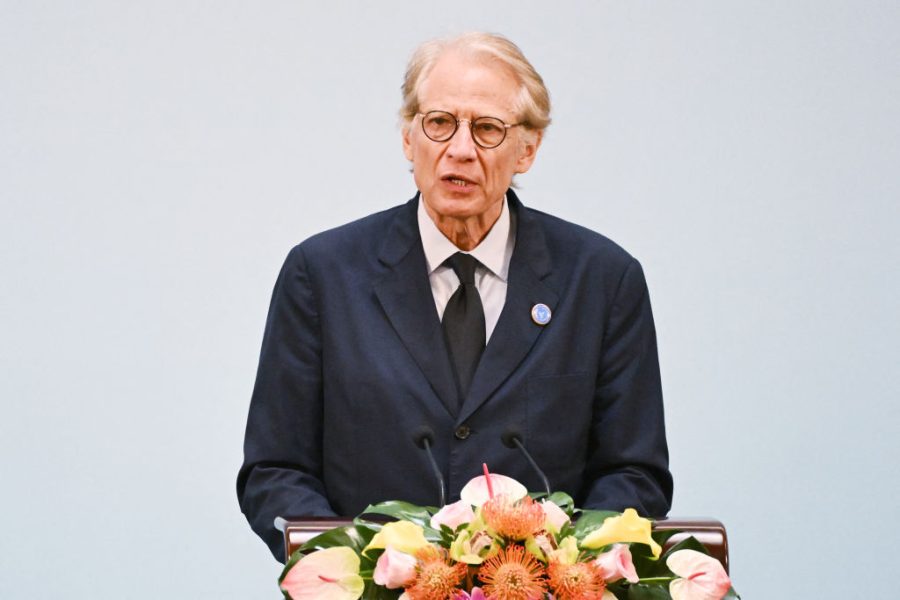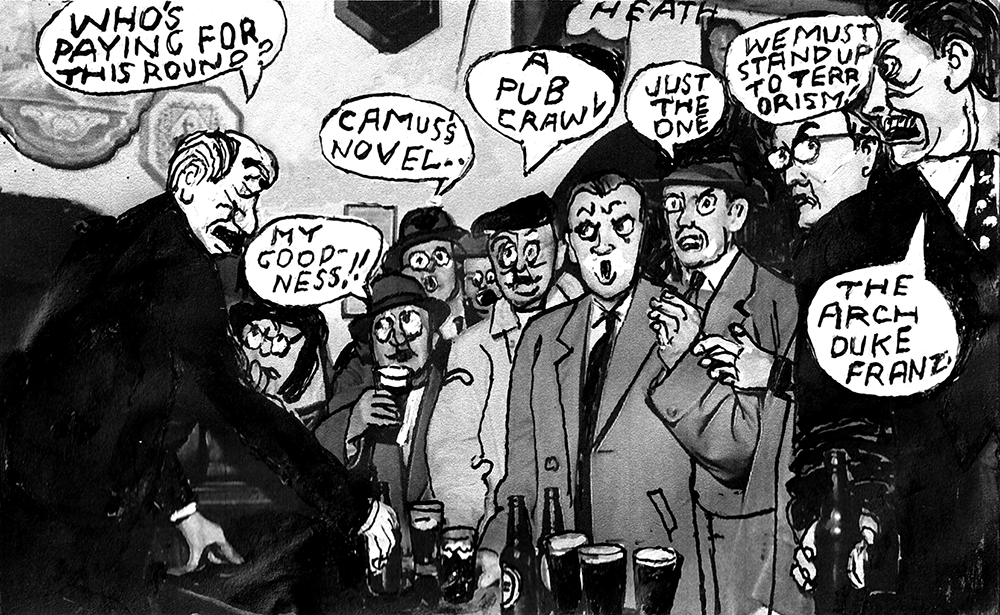If France didn’t have enough to worry about right now with its soaring rates of debt, crime and immigration, now comes news of a political comeback. Dominique de Villepin, prime minister between 2005 and 2007, earlier this month launched his political party called Humanist France. ‘I decided to create a movement of ideas, of citizens, through the creation of a political party,’ he explained. ‘This movement is for everyone. We need to unite all French people to defend social justice and the republican order,’ he said.
Given some of his recent statements about Israel, de Villepin will have his work cut out to unite the country. In October, the Jewish philosopher Bernard-Henri Lévy accused de Villepin of anti-Semitism and last week three prominent members of France’s Jewish community refused to shake his hand at a ceremony. De Villepin has strongly denied Lévy’s accusations. He also angered conservatives when he said recently he has no problem with little girls wearing the hijab. ‘I’m not a fashion designer,’ he declared.
Boomers have nothing to bequeath to France
The 71-year-old de Villepin, who reportedly has his eye on the presidential election in 2027, is best known outside France for his eloquent speech to the United Nations in February 2003. At the time, he was the foreign minister in the government of Jacques Chirac when France refused to join George W Bush’s coalition of the willing against Iraq.
France, de Villepin told the UN, ‘has never ceased to stand upright in the face of history and before mankind’ but it could not back military action against Iraq because ‘there is an alternative to war, disarming Iraq through inspections’.
It was a dignified address from a man known for his elegance as much as his eloquence. But Villepin hasn’t always been as principled since leaving political office in 2007. A year later, a French business paper remarked that de Villepin was prospering financially in his new life as a consultant and international lawyer, and ‘has only to open his address book to make an appointment with [Vladimir] Putin’.
In 2014 the Daily Telegraph broke an embarrassing story about whether de Villepin had repaid a €100,000 bonus awarded to him by a governmental ‘administrative error’. His spokesperson said he had repaid it as soon as he realised the mistake.
The next year a French current affairs weekly ran a feature headlined ‘The Secret Lives of Dominique de Villepin’ in which it said his business was booming: from China to Russia to Saudi Arabia and particularly Qatar, thanks to his warm relationship with the ruling Al Thani family.
In an angry television interview last year, de Villepin refused to elaborate on how he earned his money and from whom. Nor did he adequately explain why his company last published its accounts in 2008. ‘By definition, when you have consulting activities, you don’t give the names of the people,” he explained, adding that ‘I would be totally prepared to do so on a confidential basis’. He assured his interviewer that ‘there is no foreign power behind it’.
The interview was a grimly fascinating reminder of the arrogance of De Villepin’s caste. They are the Bourgeois Boomer generation, which evolved from the protests of May 1968 convinced they were born to rule. They include Nicolas Sarkozy, Alain Juppe, Francois Hollande, Michel Barnier and Christiane Taubira. The latter was the Minister of Justice in Hollande’s Socialist government a decade ago. She attempted a comeback for the 2022 presidential election but was forced to withdraw when she could muster only 181 of the 500 sponsors of elected officials required to run.
Hollande is also said to be considering running for the 2027 election, forgetting that he was the most despised president in the history of the Fifth Republic. At least he was until Emmanuel Macron arrived on the scene. This generation of Boomers with their barely distinguishable centrist ideology – De Villepin claims to be from the centre-right but he is more popular these days with the left – are blamed for the terrible decline of France this century.
Economically, culturally, socially, academically and morally, France is in a desperate state. Last week it was revealed that public debt hit a record €3,346 billion (£2,887 billion) at the start of 2025, €40 billion (£34.5 billion) more than at the end of 2024.
Doubtless, de Villepin (who was never elected to public office during his political career) looks at some of the leading politicians in France today – such as Jordan Bardella, Gabriel Attal, Marion Marechal, Francois Xavier-Bellamy, Marine Tondelier and Mathilde Panot – and sees thirty-something whippersnappers in need of schooling. That was how Michel Barnier treated Gabriel Attal when he replaced him as prime minister last September. Three months later Barnier was out on his ear, brought down by his own incompetence.
Boomers have nothing to bequeath to France. Their day has passed and they should go quietly into the night. Whether Xers and Millennials will be able to clean up their mess is uncertain. The damage caused by the 68ers to the Fifth Republic may be irreparable.








Comments